COP26: Middle East faces huge challenge as region seeks to ween itself off oil and gas
Middle East Eye looks at how the climate crisis is impacting the region, and what is being put forward at the climate summit
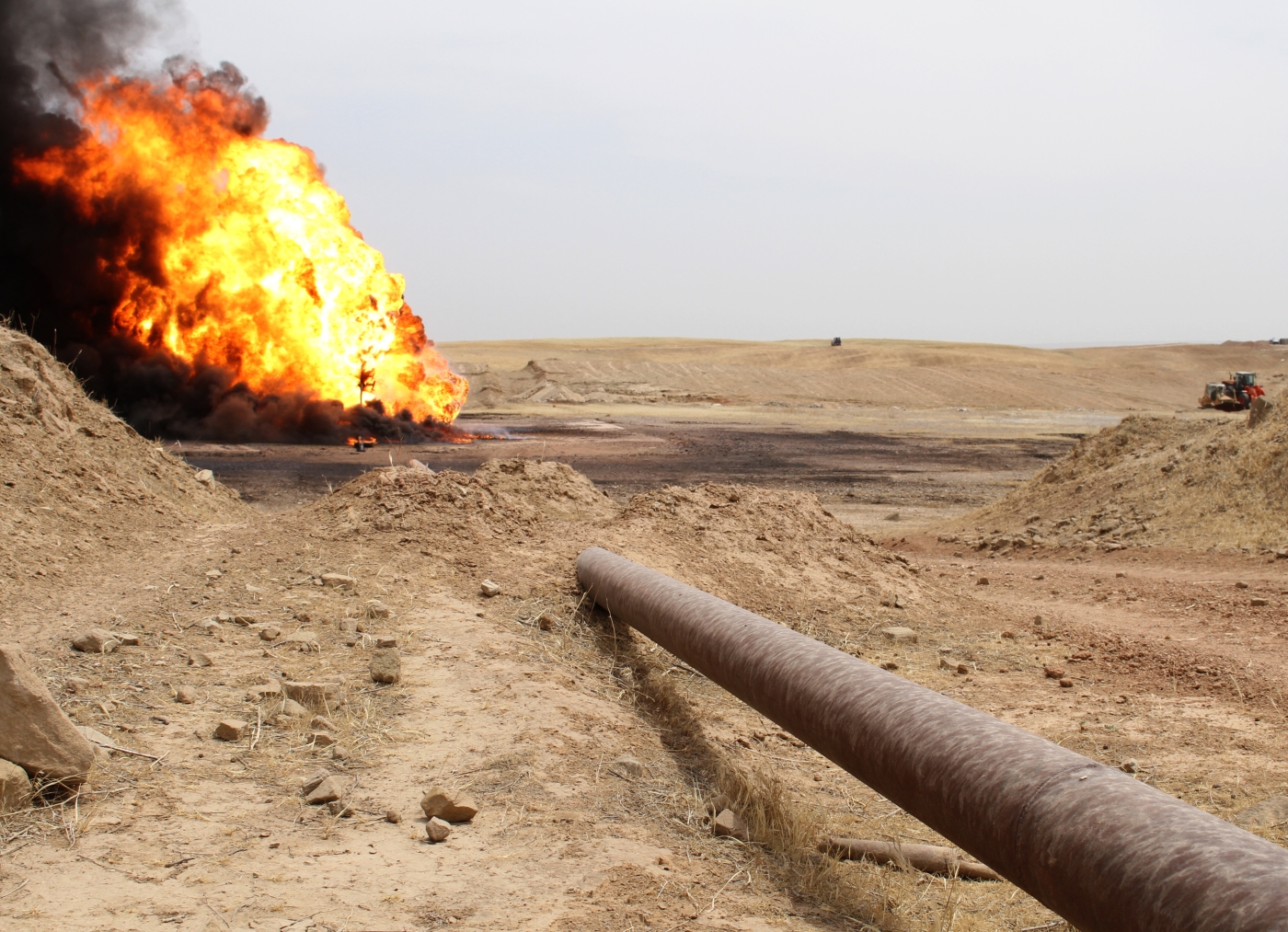
For many countries in the Middle East, the COP26 summit in Glasgow throws into stark relief the dichotomy at the heart of climate change: they are not chiefly responsible for the problem, but they will be badly affected by it.
Eighty percent of greenhouse gas emissions are produced by the nations of the G20, of which only two, Saudi Arabia and Turkey, are from the region. But the burning of fossil fuels that has led to this catastrophe has created the wealth and prosperity of some of the region's most powerful players.
Extreme heat, drought, climate-driven migration and widespread disruption to agricultural practices that often go back centuries are already a feature of daily life in the region.
Climate change has helped fuel civil war and conflict across the Middle East, including in Syria, Libya and Yemen.
And yet vested economic interests and the urgent day-t0-day problems facing Middle Eastern societies mean that taking meaningful, long-term action on climate change is fraught with difficulty.
Moreover, those voices in favour of comprehensive action to cut fossil fuel emissions, such as environmental activists from the Global South, have been largely shut out of COP26 (while billionaires such as Amazon's Jeff Bezos have flown in on private jets to grab the limelight).
Not surprisingly, there are real fears that the only thing to come out of the summit will be carefully orchestrated greenwashing and a return to business as usual.
In Glasgow, Lebanese Prime Minister Najib Mikati appeared more interested in recruiting allies in his country's feud with Gulf states than in taking action on the climate, which affects his country in myriad ways, from toxic pollution to decimated wildlife and runaway wildfires.
For the petrostates in the Gulf, whose prosperity and power structures depend almost entirely on fossil fuel extraction, meaningful action on climate change is a challenge that might also look like a threat.
Only 20 companies are behind a third of all carbon emissions released between 1965 and 2017. Five of those are state-owned oil firms from the Middle East, with Saudi Aramco, which produced over four percent of total emissions on its own, the leading polluter. The other four are the National Iranian Company, Abu Dhabi National Oil Company, Kuwait Petroleum Corporation and the Iraq National Oil Company.
The oil-producing countries of the Middle East are also the world’s largest per capita carbon emitters, with Qatar, Kuwait, the UAE, Bahrain and Saudi Arabia crowding the top of the table.
Meanwhile, widespread drought afflicts Syria and Iraq, temperatures are breaking records, wildfires sweep across the region's Mediterranean nations, air pollution plagues major cities, and the desire to secure ever more precious resources fuels violent conflict.
With North African and Middle Eastern countries sending a wide range of representatives to Scotland, Middle East Eye takes a look at the leaders who came to the summit and what's at stake for them.
Turkey
President Recep Tayyip Erdogan cancelled his trip to COP26 because of limits placed on the size of the Turkish delegation, as well as on motorised vehicles, which raised security concerns.
Government technocrats are representing Turkey at the summit, though Istanbul’s mayor Ekrem Imamoglu, an opponent of Erdogan’s, is also in Glasgow. Turkey is the victim of wildfires, flash floods and plastic waste illegally exported from the UK and Germany and burnt at Turkish landfill sites.
Erdogan, who has regularly accused environmental activists of standing in the way of Turkey’s economic development, is widely seen as a climate sceptic and has opened up large tracts of the country’s wild land to resource extraction by the state and private companies.
At a G20 press conference in Rome on Sunday, the Turkish president said he was behind his government’s declaration to end carbon emissions, but hinted – and not for the first time – at hypocrisy in other parts of the world.
“The countries aren’t in an equal position in the climate change process, which is a global struggle,” Erdogan said. “As we have expressed before, the burden-sharing should be fair between the developing and developed countries.”
This means help for Ankara. Turkey will receive a financial package of $3.1bn - largely in credit and partly in grants - to support the green economy in energy, agriculture, transportation, construction and urbanisation, according to Environment Minister Murat Kurum.
Kurum said Turkey would use the package, which is financed by the World Bank, European Bank for Reconstruction and Development, France and Germany, in the next three years.
Saudi Arabia
Crown Prince Mohammed bin Salman (MBS) does not appear to be in Glasgow, with the Gulf kingdom already agreeing to be part of the summit’s pledge to reduce methane emissions by 30 percent.
Saudi Arabia has pledged to reach net zero emissions by 2060, but this target does not count emissions from the burning of the vast amounts of oil the kingdom exports to other countries, and MBS has said nothing about diminishing its position as the world’s leading oil producer.
In fact, the crown prince has said that while the kingdom will invest $187bn in climate action this decade, it will continue producing oil and gas, thought it will produce 50 percent of its own energy using renewable sources by 2030. Saudi Arabia was also among a number of countries attempting to put pressure on scientists to water down a key UN report into climate change, according to leaked documents.
At a summit held just before a meeting with US climate envoy John Kerry in Riyadh, Mohammed bin Salman said Saudi targets would be achieved “while preserving and reinforcing the kingdom’s leading role in the security and stability of global energy markets, with the availability and maturity of required technologies to manage and reduce emissions”.
This means so-called offsetting measures, such as growing trees and the use of carbon capture technology, which many doubt will ever work. Perhaps most revealing was the Saudi crown prince’s assertion that climate change “is an economic opportunity for individuals and the private sector”.
UAE
The head of Abu Dhabi’s national oil company is the unlikely figure being touted as a climate saviour by the international press, with Sultan al-Jaber winning plaudits from the New York Times for his other role as special climate envoy to the UAE.
The praise is largely based on the UAE becoming the first state in the region to pledge net zero emissions by 2050 and the founding of a multibillion-dollar state-backed company that invests in renewable energy.
The Emirates produce about three million barrels of oil a day and have 60 years’ supply of oil left, but are now less dependent on fossil fuels than their neighbouring petrostates and are investing heavily in solar power.
Citizens of the second-largest carbon emitter per capita – which has an average temperature over the year of almost 35C - maintain lifestyles that consume vast amounts of energy. Seventy percent of electricity consumed in the UAE results from the use of air conditioning systems.
Iraq
In the Financial Times on Monday, Iraqi President Barham Salih outlined exactly what is at stake for his country, arguing for tough goals to limit climate change and writing that the issue should be a national priority.
The UN Environment Programme says Iraq is the fifth most vulnerable country in the world to changes in the climate. Largely dependent on income from oil production and reeling from decades of war and conflict, Iraq will need a great deal of help if it is to revolutionise its economy and energy production.
Rising sea levels threaten the southern city of Basra, scorching temperatures are becoming the norm, 39 percent of the country’s territory is affected by desertification, and increased salination threatens 54 percent of Iraq’s agricultural land.
Dams on the headwaters and tributaries of the historic Tigris and Euphrates rivers – between which human civilisation began - have reduced water flow, leading to shortages.
Scheduled to address the conference, Salih abruptly cancelled his planned appearance, citing the security situation at home and the “political crisis linked to the recent parliamentary election”. Iraq’s foreign minister and health minister are representing the government instead.
Salih’s absence is telling: climate change will define Iraq’s future, but ongoing domestic political upheaval makes it hard to safeguard that future.
Egypt and North Africa
Egyptian President Abdel Fattah el-Sisi has been cutting a very public figure at COP26, meeting on the sidelines with the emir of Qatar and with Lebanese Prime Minister Najib Mikati. Egypt is also hoping to host the next COP meeting.
Sisi is particularly keen to meet with US President Joe Biden, and is thought to have lifted the state of emergency in his country for that very reason. The Egyptian president’s presence in Scotland is being protested by human rights activists and exiled Egyptians.
It’s unlikely Sisi is looking to meet world leaders to focus on climate change, and on Tuesday Egypt’s petroleum ministry announced that Italian energy group Eni had made three oil and gas discoveries in the country’s western desert, with reserves amounting to about 50m barrels of oil.
British Prime Minister Boris Johnson has already said in Scotland that Alexandria may one day disappear, prompting a response from the Egyptian city’s governor, who said it had been subject to torrential rain and flooding since 2015.
Tunisia’s President Kais Saied has sent his foreign minister, Othman Jerandi, to Glasgow, while the internationally respected Algerian foreign minister, Ramtane Lamamra, is representing his country, which has reiterated the need for climate justice to be at the heart of a global move away from fossil fuels.
Algeria, like other countries in North Africa and the Middle East, needs substantial financial assistance from the rich countries of the industrialised world if it is to develop its economy without increasing its carbon emissions. The oil and gas sector is the backbone of Algeria's economy, accounting for about 20 percent of gross domestic product and 85 percent of total exports.
Algeria in recent years has faced devastating wildfires exacerbated by climate change.
Morocco, which has made some forays into solar power production, is represented by Leila Benali, the newly appointed minister for energy transition and sustainable development, and by Prime Minister Aziz Akhannouch. Natural resources play a vital role in Morocco's ongoing occupation of Western Sahara and its conflict with the Sahrawi independence movement, Polisario.
Increased aridity, increased temperatures, reduced precipitation and rising sea levels affect every country along the coast of North Africa.
https://www.middleeasteye.net/news/cop26-middle-east-countries-what-is-at-stake

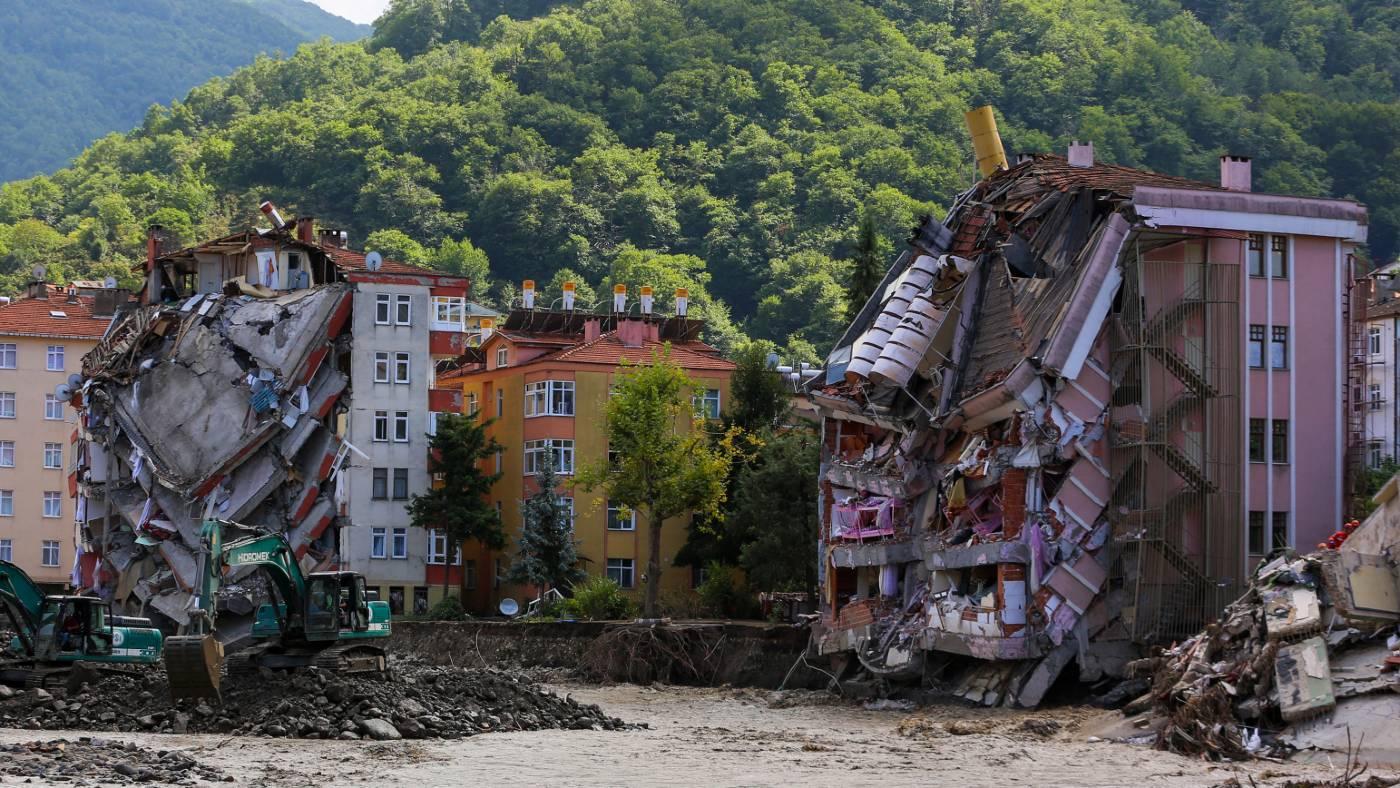
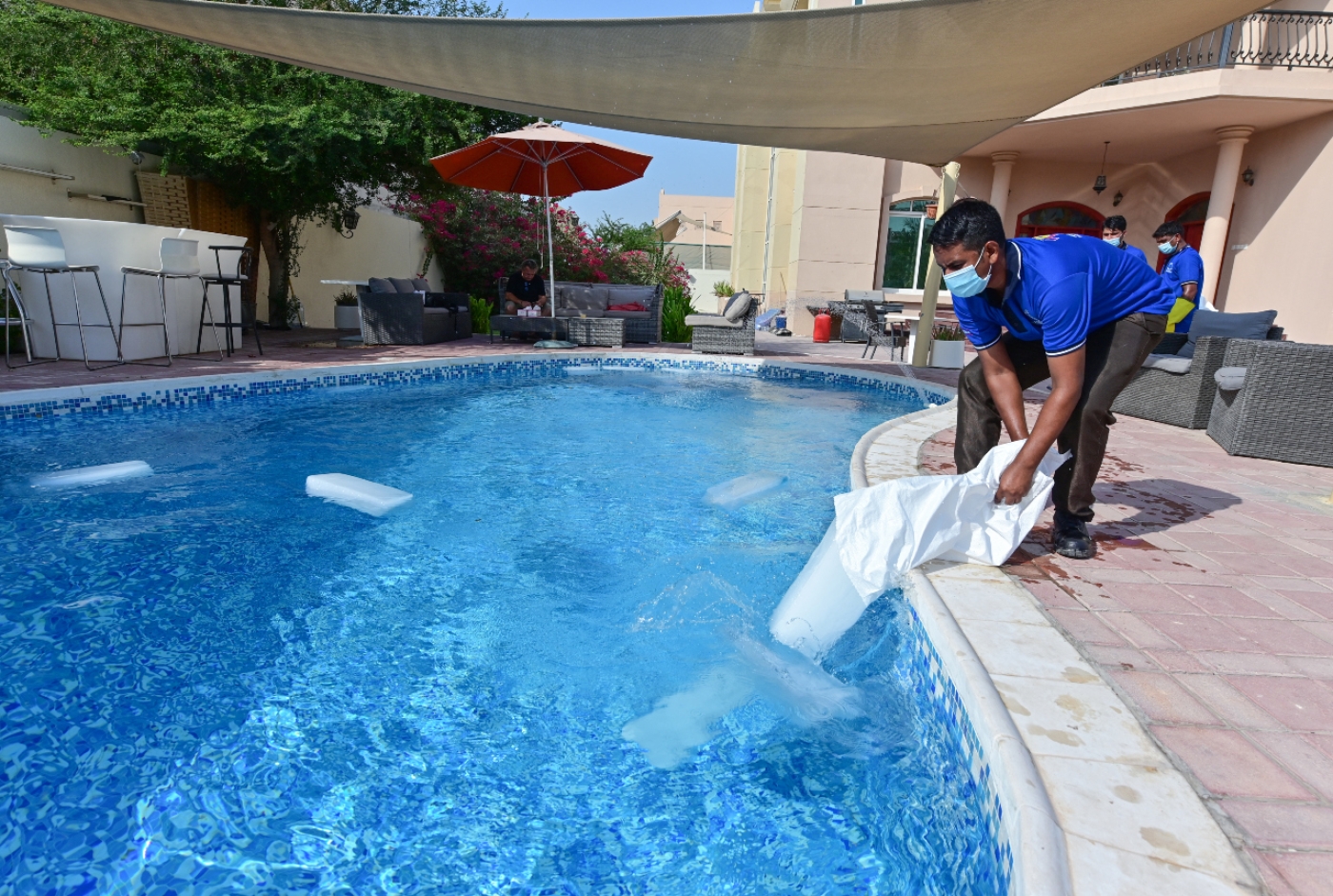
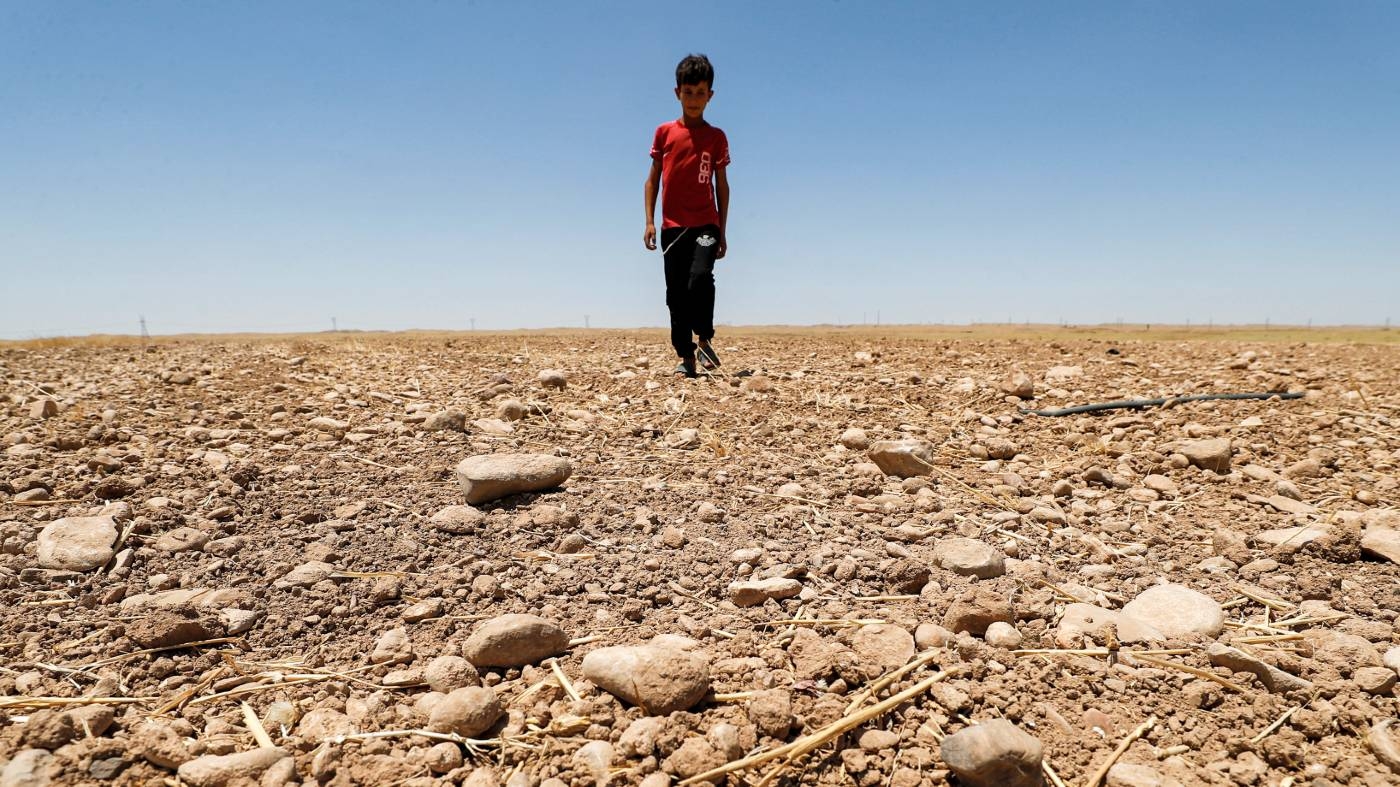
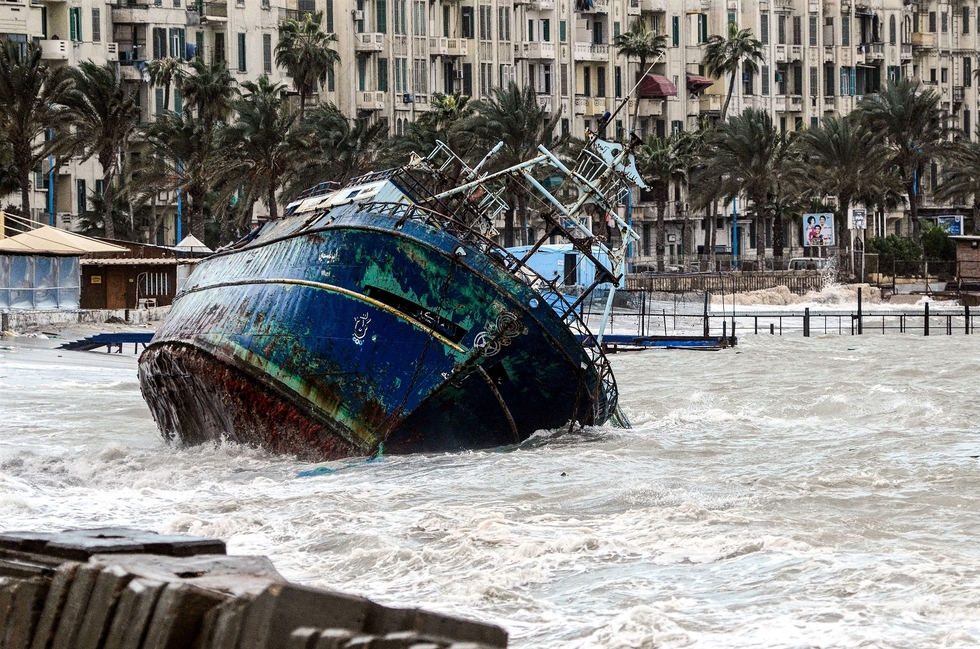

0 Comments:
Post a Comment
Subscribe to Post Comments [Atom]
<< Home